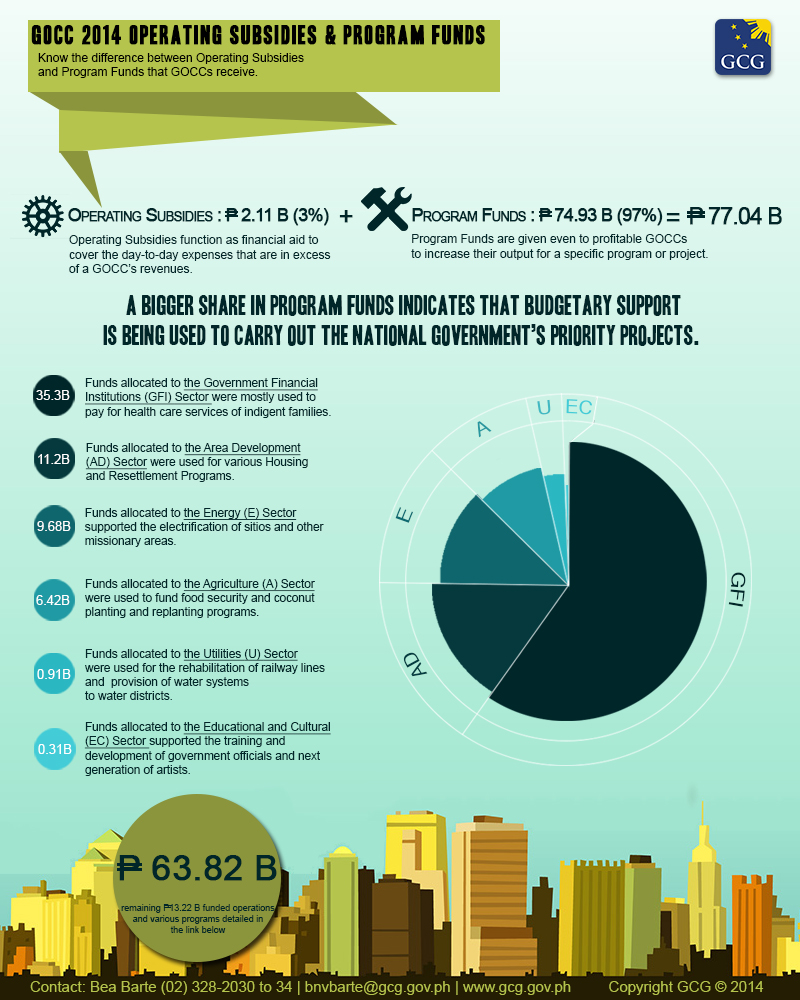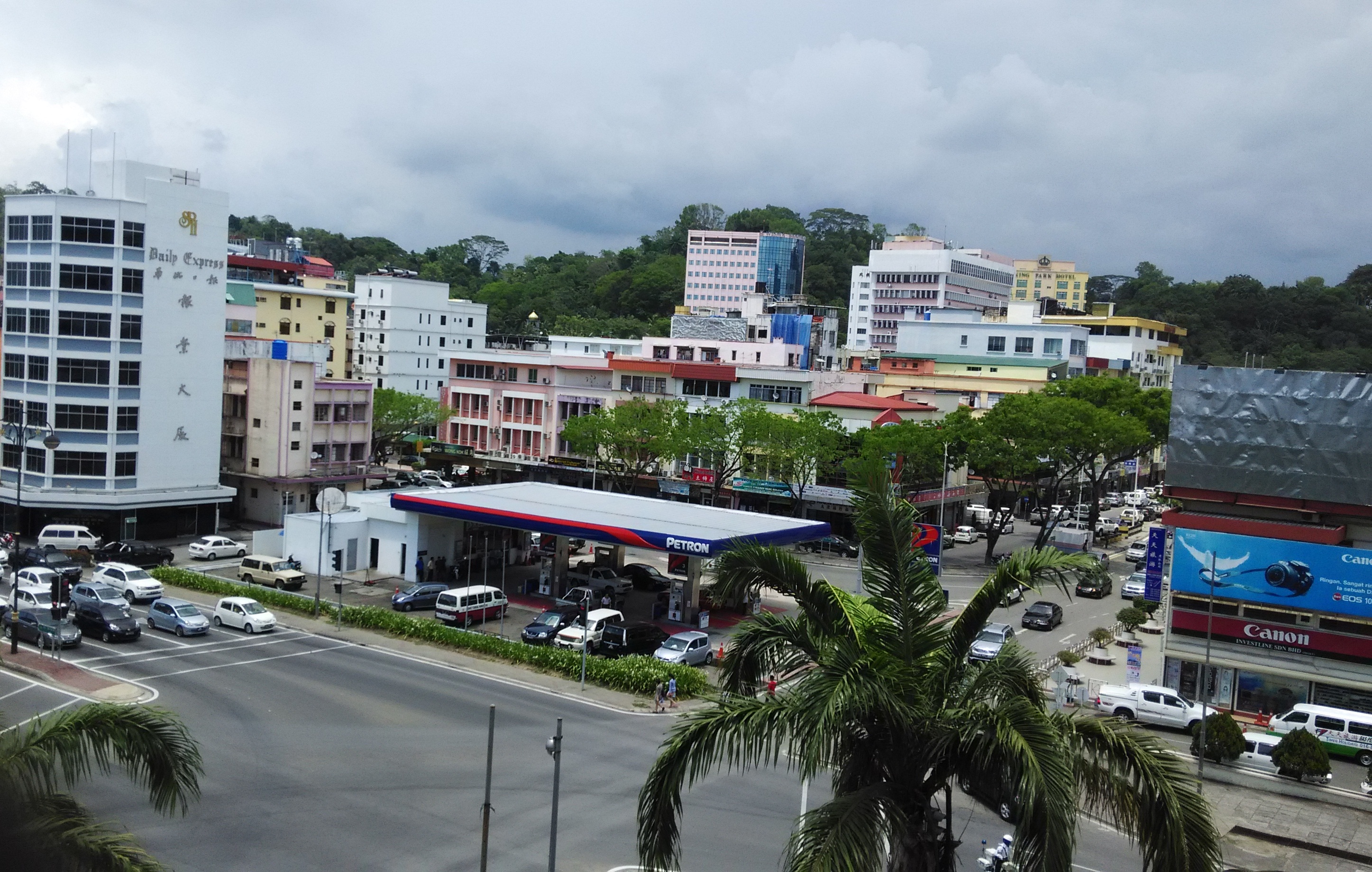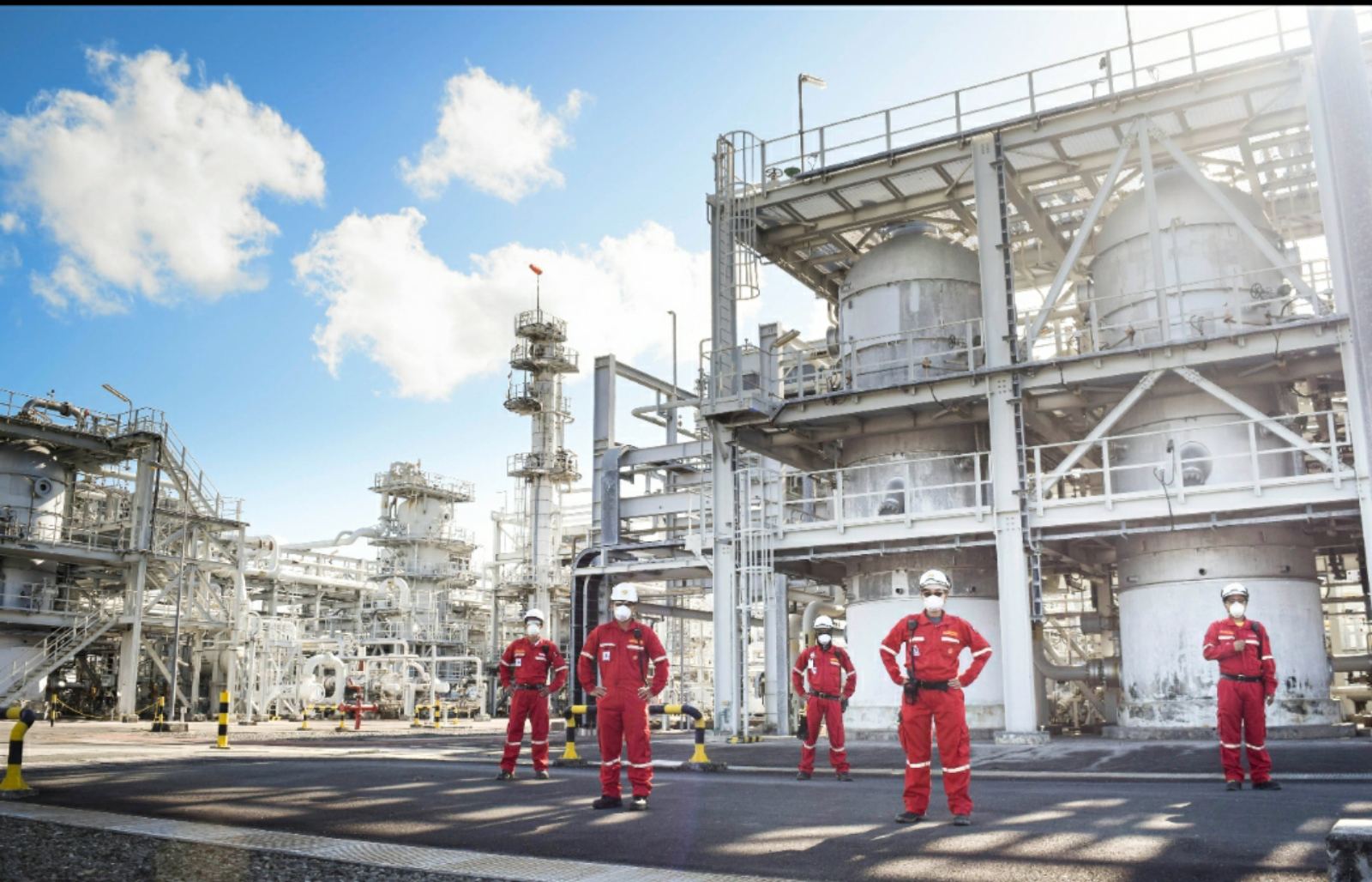|
PNOC
The Philippine National Oil Company (PNOC) is an energy company created on November 9, 1973, as a government-owned and controlled corporation founded during President Ferdinand Marcos' era to supply oil to the Philippines. Since then, its charter has been amended several times to include exploration, exploitation and development of all energy resources in the country. History PNOC was created in response to the 1970s energy crisis. The Philippine government, governed by President Ferdinand Marcos, responded to the crises by founding PNOC and forging oil-supply partnerships with supplier countries. The government later acquired refineries and petroleum transport and marketing firms with the aim of being a “total” energy company. PNOC also initiated the exploration of the country’s oil and non-oil energy resources, such as geothermal. PNOC Exploration Corporation concentrates on the oil and gas business. Its Malampaya Deepwater Gas-to-Power Project is one of the larges ... [...More Info...] [...Related Items...] OR: [Wikipedia] [Google] [Baidu] |
Government-owned And Controlled Corporation
In the Philippines, a government-owned and controlled corporation (GOCC), sometimes with an "and/or", is a state-owned enterprise that conducts both commercial and non-commercial activity. Examples of the latter would be the Government Service Insurance System (GSIS), a social security system for government employees. There are over 200 GOCCs as of 2020. GOCCs both receive subsidies and pay dividends to the national government. Under the GOCC Governance Act (Republic Act No. 10149; Government Owned and Controlled Corporations (GOCC) Governance Act of 2011), GOCCs are overseen by the Governance Commission for Government-Owned or Controlled Corporations (GCG). The Governance Commission is the "government's central advisory and oversight body over the public corporate sector" according to the Official Gazette of the Philippine government. The Governance Commission among other duties prepares for the president of the Philippines a shortlist of candidates for appointment by the presid ... [...More Info...] [...Related Items...] OR: [Wikipedia] [Google] [Baidu] |
Petron Corporation
Petron Corporation is the largest oil refining and marketing company in the Philippines, supplying more than a third of the country's oil requirements. It operates a refinery in Limay, Bataan with a rated capacity of . From the refinery, Petron moves its products mainly by sea to 32 depots and terminals throughout the country. History Petron's history dates back to September 7, 1933, when Socony-Vacuum Oil Company (Standard Oil of New York) and Standard Oil of New Jersey (also known as Jersey Standard) merged their interests in the Far East into a 50–50 joint venture named the Standard Vacuum Oil Company (Stanvac). It operated in 50 countries, including the Philippines, New Zealand, China, and the region of East Africa. In 1953, the Philippine national government, partly to promote Claro M. Recto's national industrialization program and partly to respond to increasing international oil prices, attempted to launch a national oil company that caters Filipino consumers with af ... [...More Info...] [...Related Items...] OR: [Wikipedia] [Google] [Baidu] |
Petron
Petron Corporation is the largest oil refining and marketing company in the Philippines, supplying more than a third of the country's oil requirements. It operates a refinery in Limay, Bataan with a rated capacity of . From the refinery, Petron moves its products mainly by sea to 32 depots and terminals throughout the country. History Petron's history dates back to September 7, 1933, when Socony-Vacuum Oil Company (Standard Oil of New York) and Standard Oil of New Jersey (also known as Jersey Standard) merged their interests in the Far East into a 50–50 joint venture named the Standard Vacuum Oil Company (Stanvac). It operated in 50 countries, including the Philippines, New Zealand, China, and the region of East Africa. In 1953, the Philippine national government, partly to promote Claro M. Recto's national industrialization program and partly to respond to increasing international oil prices, attempted to launch a national oil company that caters Filipino consumers with af ... [...More Info...] [...Related Items...] OR: [Wikipedia] [Google] [Baidu] |
Malampaya Gas Field
The Malampaya gas field or the Malampaya-Camago field is a deepwater gas-condensate reservoir, located in the Service Contract 38 license area, located offshore, 65 km northwest of the island of Palawan, Philippines. Background The field was discovered during the drilling of the Camago-1 well in 1989, and following successful appraisal of the Malampaya field in the 1990s, first gas flowed in September 2001. Commercial production started in January 2002. The field was developed and currently operated by Shell Philippines Exploration B.V. (SPEX), under the Royal Dutch Shell; with joint venture partners - Chevron Malampaya LLC and Philippine National Oil Company Exploration Corporation. On November 13, 2019, the Dennis Uy-led Udenna Corp. acquired Chevron Philippines Ltd.’s 45% stake. The Senate raised "red flags" about the company's expertise and financial capability to operate the gas field. The Malampaya Phase 1 development included five production wells, tied back ... [...More Info...] [...Related Items...] OR: [Wikipedia] [Google] [Baidu] |
Malangas, Zamboanga Sibugay
Malangas, officially the Municipality of Malangas ( Cebuano: ''Lungsod sa Malangas''; Filipino (Tagalog): ''Bayan ng Malangas''; Zamboangueño/Chavacano: ''Municipio de Malangas''), is a 3rd class municipality in the province of Zamboanga Sibugay, Philippines. According to the 2020 census, it has a population of 32,022 people. The municipality is generally rolling near the shorelines and mountainous in the hinterland with some patches of flat land located within the mangroves near the shorelines. It borders Buug to the north-east; Diplahan to the north-west; Imelda to the west; Margosatubig, Zamboanga del Sur, to the east; and Alicia to the south. Malangas is the site of coal mining in Western Mindanao area, operated by the Philippine National Oil Company - Exploration Corporation. The coalmine is one of the largest in the country. Its town center nests in a harbor in Dumanquilas Bay, boasts of its twin ports, one for coal, the other for passengers. Malangas, unfortunately ... [...More Info...] [...Related Items...] OR: [Wikipedia] [Google] [Baidu] |
Saudi Aramco
Saudi Aramco ( ar, أرامكو السعودية '), officially the Saudi Arabian Oil Company (formerly Arabian-American Oil Company) or simply Aramco, is a Saudi Arabian public petroleum and natural gas company based in Dhahran. , it is one of the largest companies in the world by revenue. Saudi Aramco has both the world's second-largest proven crude oil reserves, at more than , and largest daily oil production of all oil-producing companies. It is the single greatest contributor to global carbon emissions of any company in the world since 1965. On 11 May 2022, Saudi Aramco became the largest (most valuable) company in the world by market cap, surpassing Apple Inc. Saudi Aramco operates the world's largest single hydrocarbon network, the Master Gas System. In 2013 crude oil production total was , and it manages over one hundred oil and gas fields in Saudi Arabia, including 288.4 trillion standard cubic feet (scf) of natural gas reserves. Saudi Aramco operates the Ghawar Field ... [...More Info...] [...Related Items...] OR: [Wikipedia] [Google] [Baidu] |
Statutory Corporation
A statutory corporation is a government entity created as a statutory body by statute. Their precise nature varies by jurisdiction, thus, they are statutes owned by a government or controlled by national or sub-national government to the (in some cases minimal) extent provided for in the creating legislation. Bodies described in the English language as "statutory corporations" exist in the following countries in accordance with the associated descriptions (where provided). Australia In Australia, statutory corporations are a type of statutory authority created by Acts of state or federal parliaments. A statutory corporation is defined in the government glossary as a "statutory body that is a body corporate, including an entity created under section 87 of the PGPA Act" (i.e. a statutory authority may also be a statutory corporation). An earlier definition describes a statutory corporation as "a statutory authority that is a body corporate", and the New South Wales Governme ... [...More Info...] [...Related Items...] OR: [Wikipedia] [Google] [Baidu] |
Companies Based In Taguig
A company, abbreviated as co., is a legal entity representing an association of people, whether natural, legal or a mixture of both, with a specific objective. Company members share a common purpose and unite to achieve specific, declared goals. Companies take various forms, such as: * voluntary associations, which may include nonprofit organizations * business entities, whose aim is generating profit * financial entities and banks * programs or educational institutions A company can be created as a legal person so that the company itself has limited liability Limited liability is a legal status in which a person's financial liability is limited to a fixed sum, most commonly the value of a person's investment in a corporation, company or partnership. If a company that provides limited liability to it ... as members perform or fail to discharge their duty according to the publicly declared Incorporation (business), incorporation, or published policy. When a company closes ... [...More Info...] [...Related Items...] OR: [Wikipedia] [Google] [Baidu] |
Non-renewable Resource Companies Established In 1973
A non-renewable resource (also called a finite resource) is a natural resource that cannot be readily replaced by natural means at a pace quick enough to keep up with consumption. An example is carbon-based fossil fuels. The original organic matter, with the aid of heat and pressure, becomes a fuel such as oil or gas. Earth minerals and metal ores, fossil fuels (coal, petroleum, natural gas) and groundwater in certain aquifers are all considered non-renewable resources, though individual elements are always conserved (except in nuclear reactions, nuclear decay or atmospheric escape). Conversely, resources such as timber (when harvested sustainably) and wind (used to power energy conversion systems) are considered renewable resources, largely because their localized replenishment can occur within time frames meaningful to humans as well. Earth minerals and metal ores Earth minerals and metal ores are examples of non-renewable resources. The metals themselves are present i ... [...More Info...] [...Related Items...] OR: [Wikipedia] [Google] [Baidu] |
Government-owned And Controlled Corporations Of The Philippines
State ownership, also called government ownership and public ownership, is the ownership of an industry, asset, or enterprise by the state or a public body representing a community, as opposed to an individual or private party. Public ownership specifically refers to industries selling goods and services to consumers and differs from public goods and government services financed out of a government's general budget. Public ownership can take place at the national, regional, local, or municipal levels of government; or can refer to non-governmental public ownership vested in autonomous public enterprises. Public ownership is one of the three major forms of property ownership, differentiated from private, collective/cooperative, and common ownership. In market-based economies, state-owned assets are often managed and operated as joint-stock corporations with a government owning all or a controlling stake of the company's shares. This form is often referred to as a state-owned e ... [...More Info...] [...Related Items...] OR: [Wikipedia] [Google] [Baidu] |
National Oil And Gas Companies
National may refer to: Common uses * Nation or country ** Nationality – a ''national'' is a person who is subject to a nation, regardless of whether the person has full rights as a citizen Places in the United States * National, Maryland, census-designated place * National, Nevada, ghost town * National, Utah, ghost town * National, West Virginia, unincorporated community Commerce * National (brand), a brand name of electronic goods from Panasonic * National Benzole (or simply known as National), former petrol station chain in the UK, merged with BP * National Car Rental, an American rental car company * National Energy Systems, a former name of Eco Marine Power * National Entertainment Commission, a former name of the Media Rating Council * National Motor Vehicle Company, Indianapolis, Indiana, USA 1900-1924 * National Supermarkets, a defunct American grocery store chain * National String Instrument Corporation, a guitar company formed to manufacture the first resonator g ... [...More Info...] [...Related Items...] OR: [Wikipedia] [Google] [Baidu] |
Oil And Gas Companies Of The Philippines
An oil is any nonpolar chemical substance that is composed primarily of hydrocarbons and is hydrophobic (does not mix with water) & lipophilic (mixes with other oils). Oils are usually flammable and surface active. Most oils are unsaturated lipids that are liquid at room temperature. The general definition of oil includes classes of chemical compounds that may be otherwise unrelated in structure, properties, and uses. Oils may be animal, vegetable, or petrochemical in origin, and may be volatile or non-volatile. They are used for food (e.g., olive oil), fuel (e.g., heating oil), medical purposes (e.g., mineral oil), lubrication (e.g. motor oil), and the manufacture of many types of paints, plastics, and other materials. Specially prepared oils are used in some religious ceremonies and rituals as purifying agents. Etymology First attested in English 1176, the word ''oil'' comes from Old French ''oile'', from Latin ''oleum'', which in turn comes from the Greek (''elaion'') ... [...More Info...] [...Related Items...] OR: [Wikipedia] [Google] [Baidu] |







